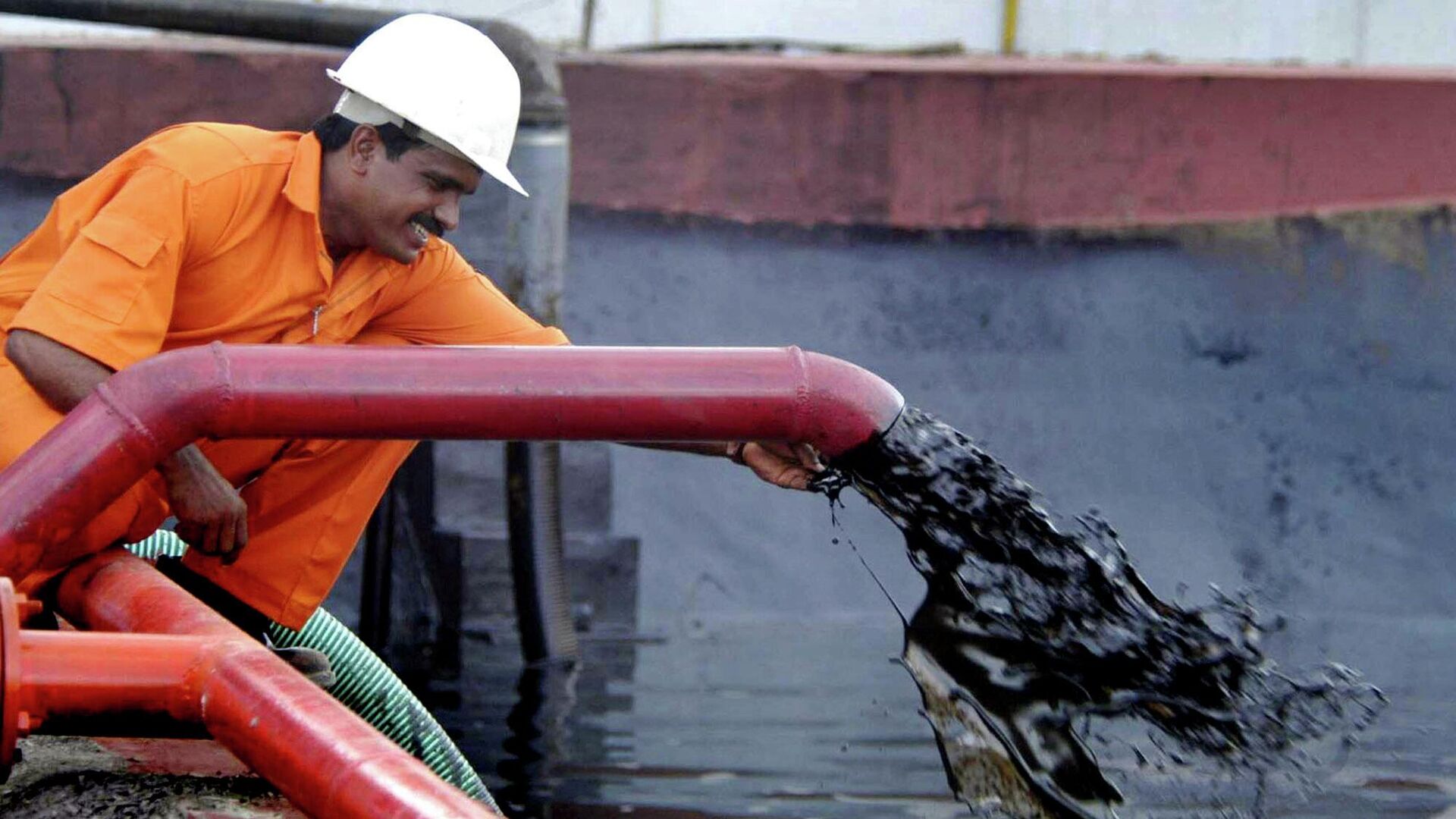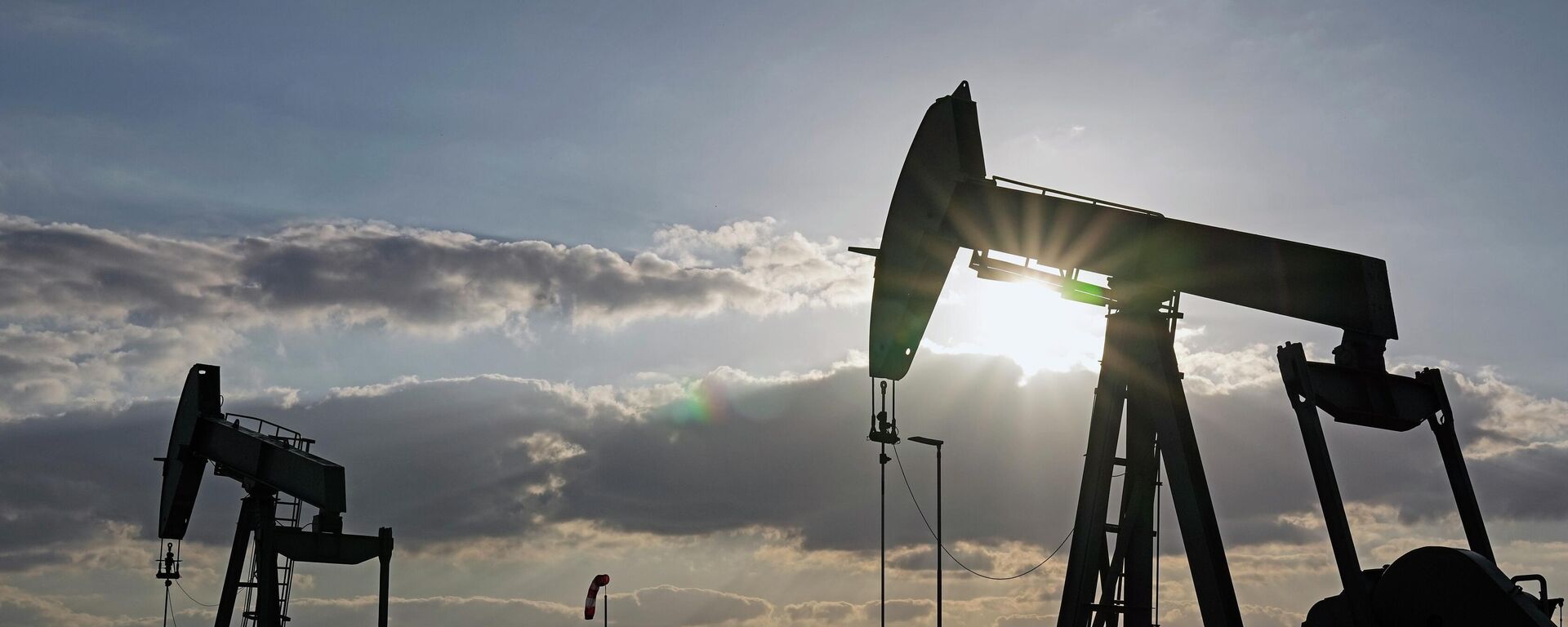https://sputniknews.in/20240103/how-west-uses-grayzone-warfare-to-damage-india-russia-ties-6074780.html
How West Uses 'Grayzone Warfare' to Damage India-Russia Ties
How West Uses 'Grayzone Warfare' to Damage India-Russia Ties
Sputnik India
India’s Minister of Petroleum and Natural Gas Hardeep Singh Puri on Wednesday rejected news reports in the media that imports of Russian crude had gone down because of “payment problems” between the two countries.
2024-01-03T18:55+0530
2024-01-03T18:55+0530
2024-01-03T18:55+0530
indo-russian relations
india
russia
new delhi
opec+
s. jaishankar
narendra modi
european union (eu)
russian oil
russian oil price cap
https://cdn1.img.sputniknews.in/img/07e7/08/09/3489485_0:0:2000:1125_1920x0_80_0_0_d8263fea6960b3d761448f81f54b2ac1.jpg
India’s Minister of Petroleum and Natural Gas Hardeep Singh Puri on Wednesday rejected news reports in the media that imports of Russian crude had gone down because of “payment problems” between the two countries.The comments were made against the backdrop of reports in certain western media that New Delhi’s Sokol-grade crude imports from Russia were at an 11-month-low in December because of “payment problems”.The Indian minister further warned that such news reports would help vested interests.Reportedly, India and Russia have increasingly been switching to the use of currencies like UAE Dirham in settling crude oil payments amid ongoing efforts by both the governments to move away from the US Dollar (USD) in the wake of sweeping western sanctions against Moscow.The two governments have also been making efforts to begin settling energy transactions in national currencies.‘Grayzone Warfare’ Becoming Common in Geopolitics: Ex-EnvoyThis is not the first time that sections of western media have been called out for their reportage on India since the Ukraine conflict last year.The framing of India-Russia relations by British and American media has drawn flak from the Indian leadership and public alike.In fact, the official five-day visit of Indian External Affairs Minister (EAM) S Jaishankar to Russia last week also drew critical reactions in sections of western media.Volumes of Russian Oil Supplies to India to RiseArpit Chandna, an energy specialist at Refinitiv, an LSEG (London Stock Exchange Group) business, told Sputnik India said that the decision by Organisation of Petroleum Exporting Countries (OPEC) and Russia to implement production cuts to stabilise global energy markets would push crude prices higher resulting in reduced discounts on Russian crude offered to India.He said that another possible reason for the lower than usual Russian crude exports to India in December was that the Russian domestic oil industry had also been ramping up its domestic production for refined products.Citing global ship tracking data, Chandna stated that certain Russian fleets have been found to be carrying Russian crude oil destined to Chinese ports.He noted that, in spite of the trend for December, Russian crude supplies to India would continue to rise in volume terms this year.“The volumes of Russian crude exports to India would remain higher on a cumulative side,” concluded Chandna.
https://sputniknews.in/20240103/indias-oil-demand-to-further-surge-by-over-4-percent-in-2024-opec-6071170.html
india
russia
new delhi
uae
saudi arabia
Sputnik India
feedback.hindi@sputniknews.com
+74956456601
MIA „Rossiya Segodnya“
2024
Dhairya Maheshwari
https://cdn1.img.sputniknews.in/img/07e6/0c/13/138962_0:0:641:640_100x100_80_0_0_2cb44360dbcdf6d84bf4b299cd045917.jpg
Dhairya Maheshwari
https://cdn1.img.sputniknews.in/img/07e6/0c/13/138962_0:0:641:640_100x100_80_0_0_2cb44360dbcdf6d84bf4b299cd045917.jpg
News
en_IN
Sputnik India
feedback.hindi@sputniknews.com
+74956456601
MIA „Rossiya Segodnya“
Sputnik India
feedback.hindi@sputniknews.com
+74956456601
MIA „Rossiya Segodnya“
Dhairya Maheshwari
https://cdn1.img.sputniknews.in/img/07e6/0c/13/138962_0:0:641:640_100x100_80_0_0_2cb44360dbcdf6d84bf4b299cd045917.jpg
russian oil exports to india, russian oil exports, russian energy exports, g7 price cap, western sanctions on russia, india russia news, india russia news, jaishankar russia visit, modi putin summit, brics summit, russia brics summit, dedollarization, dedollarization news, opec production cuts, brent crude price, petrol price in india
russian oil exports to india, russian oil exports, russian energy exports, g7 price cap, western sanctions on russia, india russia news, india russia news, jaishankar russia visit, modi putin summit, brics summit, russia brics summit, dedollarization, dedollarization news, opec production cuts, brent crude price, petrol price in india
How West Uses 'Grayzone Warfare' to Damage India-Russia Ties
New Delhi has maintained that its decision to significantly ramp up crude purchases from Russia has helped it shield Indian consumers from global volatility.
India’s Minister of Petroleum and Natural Gas Hardeep Singh Puri on Wednesday rejected news reports in the media that imports of Russian crude had gone down because of “payment problems” between the two countries.
The comments were made against the backdrop of reports in certain western media that New Delhi’s Sokol-grade crude imports from Russia were at an 11-month-low in December because of “payment problems”.
Addressing a press conference in New Delhi on Wednesday, Puri commented that such speculative reports would please the western parents of media groups.
The Indian minister further warned that such news reports would help vested interests.
“There is no payment problem. It is a pure function of price at which our refiners will buy. On the contrary, producers are coming up to us requesting to buy more oil from them. There has never been a payment problem,” Puri asserted.
Reportedly, India and Russia have increasingly been switching to the use of currencies like UAE Dirham in settling crude oil payments amid ongoing efforts by both the governments to move away from the US Dollar (USD) in the wake of sweeping western sanctions against Moscow.
The two governments have also been making efforts to begin settling energy transactions in national currencies.
Puri highlighted that the share of Russian crude imports had risen from below 0.2 percent of the overall imports in February 2022 to between 33 and 40 percent this year.
‘Grayzone Warfare’ Becoming Common in Geopolitics: Ex-Envoy
This is not the first time that
sections of western media have been called out for their reportage on India since the Ukraine conflict last year.
The framing of India-Russia relations by British and American media has drawn flak from the Indian leadership and public alike.
For instance, American anchor Becky Anderson questioned Puri in November 2022 if India had no “qualms” in buying Russian oil. “Absolutely none,” the Indian petroleum minister retorted.
In fact, the official
five-day visit of Indian External Affairs Minister (EAM) S Jaishankar to Russia last week also drew critical reactions in sections of western media.
Explaining the tendency of western media to seek to disrupt India-Russia ties, former Indian Ambassador Anil Trigunayat told Sputnik India that “gray zone warfare” was becoming increasingly prominent in geopolitics.
“Grayzone warfare is a common thread in today's diplomatic course whose essential objective is to create alternate narratives at the expense of factual situation to serve their strategic ends,” stated Trigunayat.
Volumes of Russian Oil Supplies to India to Rise
Arpit Chandna, an energy specialist at Refinitiv, an LSEG (London Stock Exchange Group) business, told Sputnik India said that the decision by Organisation of Petroleum Exporting Countries (OPEC) and Russia to implement production cuts to stabilise global energy markets would push crude prices higher resulting in reduced discounts on Russian crude offered to India.
"Russian crude would continue to be in demand in India if it continues to be sold at discounted levels than other crude benchmark grades. Although, the recent decision by OPEC+ and Russia to cut down production would drive the global prices higher, which would in any case decrease the discounts,” the energy analyst said.
He said that another possible reason for the lower than usual Russian crude exports to India in December was that the Russian domestic oil industry had also been ramping up its domestic production for refined products.
Citing global ship tracking data, Chandna stated that certain Russian fleets have been found to be carrying Russian crude oil destined to Chinese ports.
He noted that, in spite of the trend for December, Russian crude supplies to India would continue to rise in volume terms this year.
“The volumes of Russian crude exports to India would remain higher on a cumulative side,” concluded Chandna.



